Microfinance/Debt
Video | Voice of Borrowers - Ny Roeun
5 April 2025
One way borrowers can seek justice when facing abuses related to their microfinance loans is by submitting a request to the National Bank of Cambodia.
This video shares the story of a Tampuan Indigenous borrower from Ratanakiri who has been struggling to repay his loan. To keep up with payments, he had previously sold the motorbike and cart he used to transport vegetables for daily income and was forced to take out private loans to repay the microloan. He decided to apply to the National Bank of Cambodia for a loan restructuring because he could not face the abusive debt collection that was pressuring him to sell his land and to ensure that he could stay at home with his three children and his pregnant wife and make the repayments within his means.
All borrowers have the right to submit complaints to the National Bank of Cambodia.
Video | Voice of Borrowers - Rochom Saing
21 March 2025
Submitting a petition to the National Bank of Cambodia is one way for people to seek justice when they face abuses related to loans.
This video is the story of an Indigenous borrower from the Kachok community who is struggling with their debt and facing pressure from microfinance institutions to repay. This has had impacts on the identity of their Indigenous community. The borrower decided to submit a request to the National Bank of Cambodia for intervention in this case, hoping to ensure that their children do not have to leave school to work or they do not have to take out informal loans to repay their debt.
All borrowers have the right to file complaints with the National Bank of Cambodia.
Video | Voice of Borrowers - Khoy Thavin and Sot Savan
14 March 2025
One way for people to seek justice when they are facing abuses related to their microfinance loans is to submit a request to the National Bank of Cambodia.
This video is a case of borrowers who made such a request. The borrowers still intend to repay their debt, but requested the National Bank's intervention to compel their lender to resolve their case and respect their human rights, and ensure they do not need to sell their land or remove their children from school.
All borrowers have the right to submit complaints to the National Bank of Cambodia.
Video | Debt
14 February 2025
Please remember that no one has the right to pressure or force you to sell your land or house to pay off debts outside of the court system.
Statement | Mediation between NGOs and Oikocredit on Harms in Cambodia's Microfinance Sector Fails to Reach Agreement
28 January 2025
Statement on the ending of the Dutch National Contact Point mediation process from The Cambodian League for the Promotion and Defense of Human Rights (LICADHO), Equitable Cambodia and FIAN Germany:
The mediation process that followed a specific instance filed to the Dutch National Contact Point (NCP) in December 2022 regarding harmful human rights abuses in Cambodia's microfinance sector has ended on Friday without an agreement between the NGOs and Oikocredit.
We regret that mediation did not result in timely remedy and tangible relief for Cambodian borrowers. They desperately need and deserve a functioning grievance mechanism and financial compensation from international investors, who continue to profit as borrowers continue to suffer.
Video | If You Are Having Trouble Repaying, What Can You Do?
26 September 2024
If you are having trouble repaying, what can you do?
You can request a loan restructuring from the institution where you borrowed money.
Remember that no one has the right to pressure or force you to sell land or a house to pay off debts out of court.
Statement | Cambodian Government Must End Human Rights Abuses in Microfinance Sector
7 May 2024
The Cambodian government must urgently act to address predatory lending and abusive collection practices in the country’s microfinance sector, local and international CSOs urge in a submission ahead of the UN Human Rights Council’s universal periodic review (UPR) of Cambodia.
The call to address long-standing and widely reported abuses in Cambodia’s microfinance sector comes as 30 recommendations made in the 2019 UPR cycle to improve the human rights situation have gone unheeded due to a lack of meaningful government oversight. This has enabled Cambodia’s microloan sector to balloon in recent years, with average loan sizes rising to over $5,000—the highest in the world—and coerced debt-driven land sales happening in significant numbers across the country.
Media Album | Cambodian Government Must End Human Rights Abuses in Microfinance Sector
6 May 2024
As Cambodia’s human rights record is reviewed at the Human Rights Council on 8 May 2024, we urge UN Member States to recommend granting debt relief and implementing free education and healthcare services, in order to reduce debts and put an urgent stop to abuses linked to microfinance loans.
LICADHO, Equitable Cambodia, Sahmakum Teang Tnaut, and FIAN Germany are releasing a series of infographics today in four languages to highlight the debilitating indebtedness faced by many Cambodians and the predatory tactics used by microfinance institutions and microloan providers to target vulnerable, poor and Indigenous communities.
UN Member States must hold Cambodia accountable during the Universal Periodic Review and make recommendations to immediately end human rights abuses in the country’s microfinance sector.
LICADHO, Equitable Cambodia, Sahmakum Teang Tnaut, and FIAN Germany submitted a report to the Human Rights Council on these concerns. The submission can be accessed here.
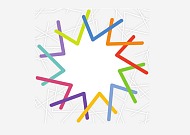
19 March 2024
On 13-15 March 2024, representatives of social impact investor Oikocredit, Ecumenical Development Cooperative Society U.A. and of three human rights NGOs, Cambodian League for the Promotion and Defense of Human Rights (LICADHO), Equitable Cambodia and FIAN Germany, came together for a dialogue. This was part of the process related to the submission made by the three NGOs to the Dutch OECD National Contact Point for Responsible Business Conduct concerning the alleged negative impacts of some microfinance loans on Cambodian borrowers.
During the dialogue, there was strong common ground between the parties in their commitment to improve the livelihoods of Cambodian borrowers. There was also a joint recognition of the urgent issues in the Cambodian microfinance sector and the need to take action to address them. The parties have identified and committed to concrete next steps towards a positive outcome of the dialogue.
The Dutch NCP has commended both parties on their good faith engagement in the ongoing NCP process.

18 September 2023
The Netherlands’ National Contact Point for Responsible Business Conduct (Dutch NCP) has accepted and will proceed with a complaint alleging that Oikocredit, a global social investor based in the Netherlands, has contributed to severe adverse human rights impacts in Cambodia’s microfinance sector.
The complaint followed extensive public evidence of widespread and systematic human rights abuses in Cambodia’s microfinance sector, including reports of violations associated with the microloan providers that receive direct funding from Oikocredit. The complaint alleges that Oikocredit was aware of reports of predatory lending, coercive collection practices, and related serious harms in Cambodia’s microfinance sector since at least 2017 yet continued and even increased its investments through 2022.
Video | Complaint Mechanism for Affected MFI Borrowers
30 August 2023
Today, LICADHO is introducing a mechanism for all Cambodians who wish to file a complaint about aggressive and predatory MFIs/banks.
Complaints can be made on behalf of anyone who has experienced harms and abuses in the microfinance sector. Such abuses might include coerced land sales, child labour, unwanted migration, hunger, threats and intimidation, and other harms.
Report | Debt Threats: A Quantitative Study of Microloan Borrowers in Cambodia
29 August 2023
Equitable Cambodia (EC) and the Cambodian League for the Promotion and Defense of Human Rights (LICADHO) today are releasing Debt Threats: A quantitative study of microloan borrowers in Cambodia’s Kampong Speu province. The report features findings from a survey of 717 households.
The research shows that widespread over-indebtedness has led to significant numbers of serious human rights abuses – including hunger, child labour, and coerced land sales – across Kampong Speu province. Borrowers are making unacceptable sacrifices to repay loans that are overwhelmingly collateralised with land titles, and that often far exceed borrowers’ incomes and ability to repay.
Flash Info | Investigation of IFC Investments in MFIs to Move Forward
2 August 2023
The Compliance Advisor Ombudsman (CAO) of the International Finance Corporation (IFC) will carry out a compliance investigation of six microfinance lenders in Cambodia and four intermediaries over harms caused by over-indebtedness and predatory lending.
The CAO’s investigation was initially announced on 13 June 2023, but was delayed after IFC management requested the IFC Board to review the CAO’s decision. This was the first ever request of its kind, made using a 2021 amendment to the CAO policy that allows for such reviews under narrow, technical grounds only. The IFC later withdrew its request on the last day of the review period without explanation. The CAO noted a policy requiring “any request” to be published, but also said a decision on whether to publish this withdrawn request is “pending.”
The CAO’s Compliance Appraisal Report determined that an investigation was warranted. In this report, the CAO stated it had found preliminary indications of harm and that the IFC may not have complied with its own policies. The report noted that those harms are plausibly linked to IFC’s potential non-compliance.
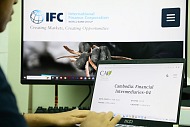
18 July 2023
The Board of Directors of the International Finance Corporation (IFC) has granted itself additional time to review a decision by its independent accountability mechanism to open an investigation into IFC microfinance investments in Cambodia. The Board has until 28 July 2023 to uphold or overturn the decision to investigate.
The IFC is a member of the World Bank Group, and it has made significant investments in Cambodia’s microfinance industry. Following a complaint, the independent accountability mechanism of the IFC – the Compliance Advisor Ombudsman (CAO) – completed, among other steps, a seven-month-long review and on 13 June 2023 “concluded that an investigation is merited". On 29 June, IFC management requested that the Board review the CAO’s decision, by activating a never-before-used 2021 amendment to the CAO Policy.
Twenty-four stakeholders, including LICADHO, wrote a joint letter to the Board on 12 July 2023 outlining concerns about IFC management’s request for Board review. The letter reminds the Board that CAO Policy limits their review to narrow technical criteria, and that the Board is explicitly prohibited from making a judgement on the merits of the complaint.
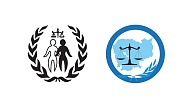
3 July 2023
The ombudsman of the International Finance Corporation (IFC) has determined that a compliance investigation is warranted in response to a complaint that IFC’s investments in six microfinance institutions in Cambodia, as well as four funds and investors, contributed to harms suffered by Cambodian borrowers. However, in an unprecedented move, IFC management has requested that the IFC Board review the ombudsman’s decision – which could delay or end the compliance investigation process.
The Board has 10 working days to review the request. It may either allow the compliance investigation to move forward, reverse the CAO’s decision, or give itself additional time to review the request.
“An investigation is a crucial step toward justice and remediation for Cambodian borrowers who continue to suffer due to predatory lending,” said Naly Pilorge, outreach director of LICADHO. “The IFC management’s request for board review, after the CAO decided an investigation is merited, is a shameful ploy to avoid scrutiny. The IFC needs to prove that it is committed to accountability through the CAO and stop trying to corrupt an independent process.”
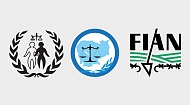
12 December 2022
Three NGOs today filed a complaint to the Dutch government’s National Contact Point for Responsible Business Conduct accusing Oikocredit, a global social investor based in the Netherlands, of failing to conduct proper due diligence on its investments in Cambodia’s microfinance sector since at least 2017, despite evidence of harms directly linked to those investments.
Oikocredit has made large and increasing investments in Cambodian microfinance institutions (MFIs) from 2017 through 2022, at a time when overwhelming evidence of widespread over-indebtedness and negative social impacts was being produced by local NGOs, journalists, international NGOS and even Oikocredit itself. Despite this evidence, Oikocredit increased its investments in Cambodian MFIs, rising from 50 million Euros in 2017 to more than 67 million Euros as of September 2022 – making Cambodia the country with the second-largest exposure in Oikocredit’s portfolio.
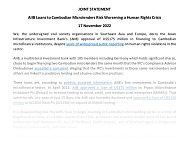
17 November 2022
We, the undersigned civil society organisations in Southeast Asia and Europe, decry the Asian Infrastructure Investment Bank’s (AIIB) approval of US$175 million in financing to Cambodian microfinance institutions, despite years of widespread public reporting on human rights violations in the sector.
AIIB, a multilateral investment bank with 105 members including Germany which holds significant shares, chose to begin financing two Cambodian microlenders the same month that the IFC’s Compliance Advisor Ombudsman accepted a complaint alleging that the IFC’s investments in those same microlenders and others are linked to predatory lending and abusive collection practices.
Statement | IFC Watchdog Moves to Compliance Stage of Cambodian Microloan Complaint
15 November 2022
A complaint against six microfinance institutions and banks in Cambodia that are funded by the International Finance Corporation (IFC) will move into the Compliance stage, an important step toward a much-needed investigation into years of abuses and violations of IFC performance standards by microloan providers in Cambodia.
The Compliance Advisor Ombudsman (CAO) of the IFC has announced that the complaint, filed in February this year by LICADHO and Equitable Cambodia (EC) on behalf of affected Cambodian borrowers, will move to Compliance following the decision of some complainants, and after other complainants and financial institutions did not reach a mutual agreement to enter into dispute resolution.
Statement | German Government-Funded Study Confirms Grave Problems in Cambodia’s Microfinance Sector
14 September 2022
A study commissioned by the Federal Ministry for Economic Cooperation and Development (BMZ) provides further evidence of widespread over-indebtedness in Cambodia, resulting in an “alarmingly high” and “unacceptable” number of distressed land sales. The study’s findings indicate that more than 167,000 Cambodian households have had to sell land to repay loans over the past five years. FIAN as well as Cambodian NGOs LICADHO and Equitable Cambodia call on the German government and other donors of the microfinance sector to fulfil their responsibilities and take immediate and concrete action to address this untenable situation.
Statement | IFC Watchdog Accepts Complaint over Microfinance Abuses in Cambodia
3 May 2022
The Compliance Advisor Ombudsman of the International Finance Corporation (IFC) has accepted and will move ahead with its review of a complaint alleging human rights violations and violations of IFC performance standards committed by six microfinance institutions and banks that offer microloans in Cambodia.
The complaint was filed on behalf of affected borrowers by Equitable Cambodia (EC) and the Cambodian League for the Promotion and Defense of Human Rights (LICADHO). It details how the IFC failed in its obligation to conduct due diligence and supervise projects to ensure compliance with performance standards. As a result, grave harms resulted from IFC loans and investments in six microfinance institutions (MFIs) and microloan-providing banks in Cambodia – ACLEDA, Hattha Bank, Sathapana, Amret, LOLC, and Prasac – who together hold about 75% of the country’s microloans.